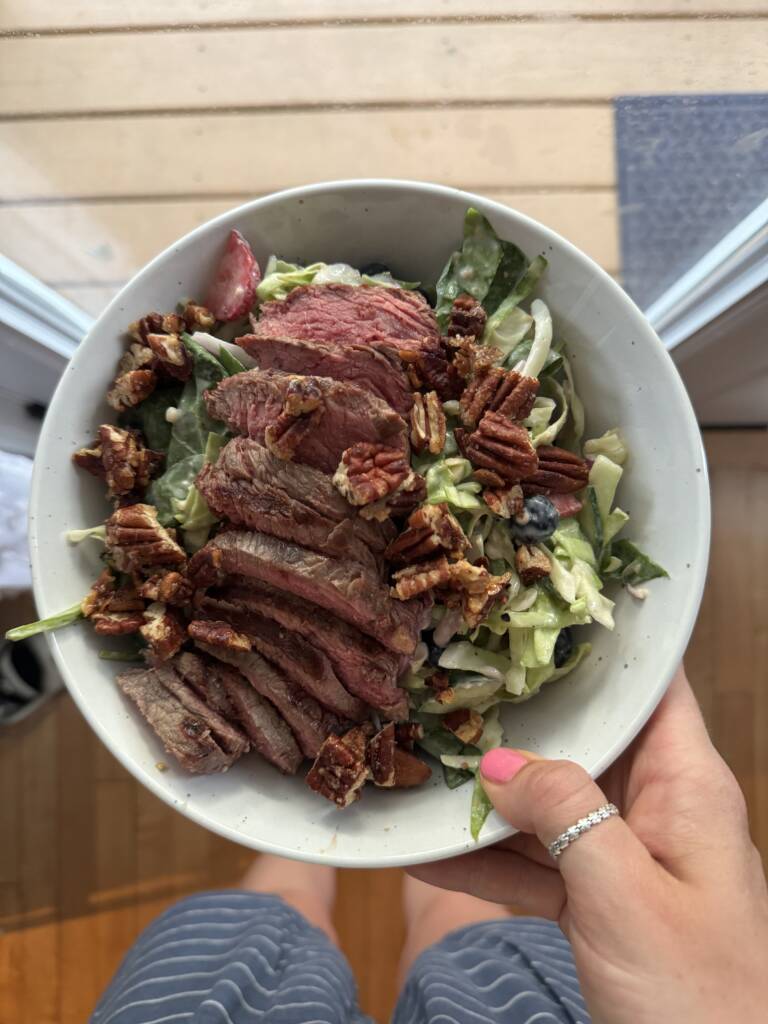For mountain athletes—climbers, bikers, runners—it’s easy to glorify the grind. We obsess over training plans, elevation gain, power output, and routes. But if you’re only focusing on the work, you’re missing the bigger picture. Fuel and recovery are more than half the battle to accomplishing your physical goals in the mountains.
Because real performance isn’t just built in the gym or on the trail—it’s also built in the kitchen and in your sleep.
1. Fueling: Performance Starts on Your Plate
Training breaks your body down. Food builds it back up. And if you’re not eating well—or enough—you’re not recovering, adapting, or performing at your peak.
Let’s look at the numbers:
- Mountain athletes can burn 600–900+ calories per hour depending on intensity and terrain.
- A 2021 study in the International Journal of Sport Nutrition found that nearly 50% of endurance athletes under-fuel during training blocks, increasing the risk of injury, hormonal imbalance, and fatigue.
- Protein needs for active adults are often underestimated: 1.6–2.2g/kg of bodyweight per day is ideal for recovery and lean mass maintenance.
What this means: skipping meals, under-fueling, or eating a super “clean” but low-energy diet can actually work against you. Prioritize carbs for energy, protein for repair, and fats for hormone support. And don’t be afraid to eat more during intense training blocks.

2. Recovery: Where the Gains Actually Happen
You don’t get faster, stronger, or more agile during training. You get better during recovery—when your body has the chance to adapt and rebuild.
Recovery is more than just sleep (though that’s a big one). It includes:
- 7–9 hours of sleep per night – Sleep debt impairs reaction time, coordination, and endurance.
- True rest days – Your body needs 1–2 full rest days per week, especially in high-volume seasons.
- Active recovery practices – Foam rolling, mobility work, light movement, sauna, or massage.
Fun fact: one study in Sleep Journal showed that even one night of poor sleep can reduce endurance performance by up to 10%. Not to mention the mental fog and injury risk that comes with chronic fatigue.

3. Don’t Just Train Hard—Train Smart
If you’re chasing long-term progress—whether that’s sending a new climbing grade, shaving minutes off your trail run, or crushing back-to-back bike park laps—then a holistic approach matters.
Ask yourself:
- Am I eating enough to support my output, especially on big days?
- Am I letting my body recover, or pushing through fatigue?
- Is my training balanced with life stress, sleep, and nutrition?
Fuel and Recovery
Because the strongest athletes in the mountains aren’t just the ones who grind the hardest—they’re the ones who recover with purpose, fuel with intention, and train with wisdom. Proper fuel and recovery are tough to overdo. In my 15 years of experience training athletes I have not seen anyone over-train, rather I have seen many people “Under” recover.
(post to soon follow with a sample week-long recovery plan for mountain bikers as well as how to fuel for long alpine days).


